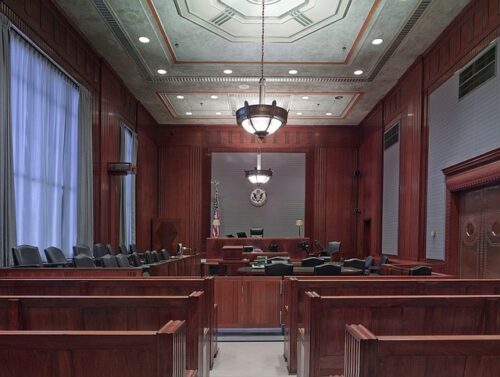
When charged with a crime, the idea of a trial ahead can be daunting. In many instances, you may think it’s easier to accept a plea deal offered by the prosecution so you do not have to endure the stress of a trial. However, when you accept a plea deal, you’ll still need to face the consequences of pleading guilty to a crime, which can include jail time and leave a permanent stain on your record. As such, Houston criminal defense attorneys may advise you to proceed to trial if they believe they can win your case. Keep reading to learn how a criminal trial works and what strategies can help you through these complex matters.
What Are the Steps in a Criminal Trial?
When charged with a crime, you will first be arraigned for the crime, which means the court will read the charges against you and allow you to enter your plea. If you want to proceed to trial, you will enter a plea of not guilty. Once this is done, you will enter the pre-trial stage. Essentially, this is where both the prosecution and defense will share information during the discovery process.
Next, the trial will begin. Generally, this begins with opening statements from each side. Next, the prosecution will call witnesses to the stand and examine evidence. After, the defense can repeat these steps. Once all evidence has been submitted and witnesses have been questioned, each side will offer their closing arguments before resting their case. Once both sides rest, the jury will deliberate before issuing a verdict. If the defendant requests a bench trial, the judge will issue a verdict. After, depending on whether or not the defendant is found guilty, the judge will sentence the defendant.
What Strategies Can Help Me Receive a Favorable Outcome?
One way your defense attorney will look to win your case is to file a motion to dismiss the case. Essentially, this means they are requesting that the charges against you be dropped, whether it’s because of insufficient evidence or the prosecutor engaged in misconduct.
Additionally, your attorney may argue that the evidence against you should not be admissible in court. Generally, this can happen when law enforcement violates your rights, such as conducting an illegal search and seizure. If this occurs, the evidence collected may be excluded, as your Constitutional rights were violated during the collection process. Your lawyer may also ask for evidence to be excluded because it constitutes hearsay or unsubstantiated rumors. When evidence is barred from the trial, it can inhibit the prosecution’s case against you, as the evidence may be integral to finding you guilty.
As you can see, many complexities can impact your criminal trial. That’s why it’s important to ensure you connect with an experienced attorney. At the Gonzalez Law Group, our team understands how complex these matters can be. Luckily, we can help you navigate them. Contact us today to learn how we can assist you through these challenging times.



